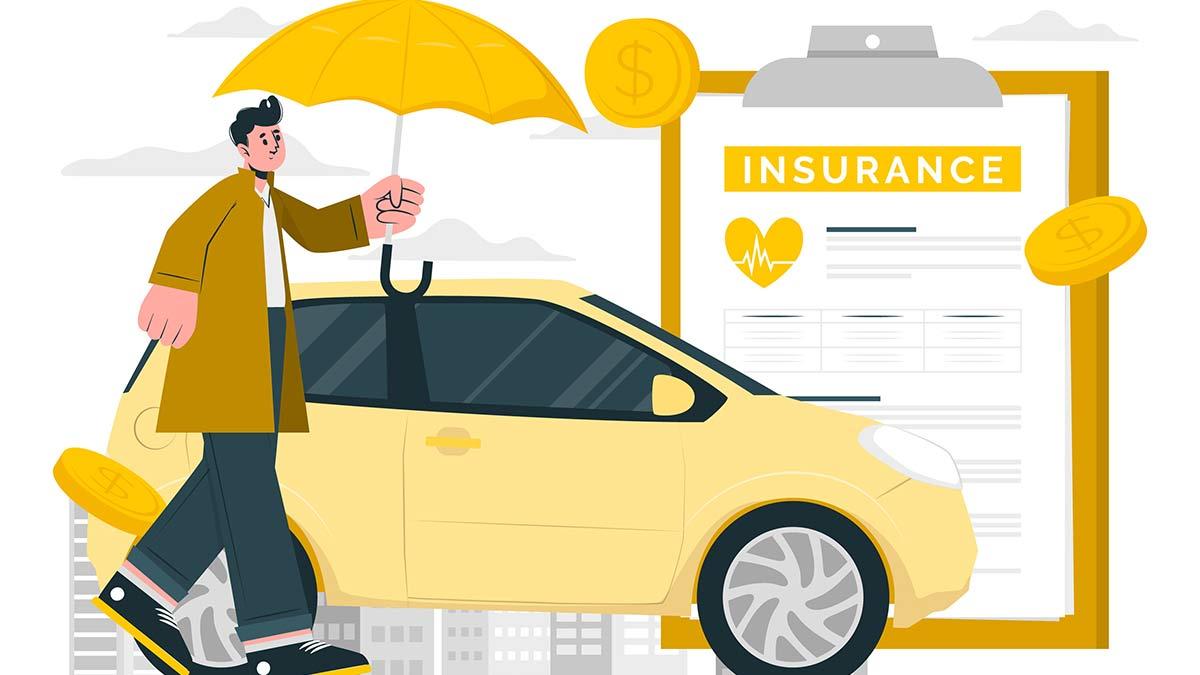Many companies rely on business vehicles, such as delivery vans, trucks, or company cars, to run their business. The resulting damages and liability can overwhelm the business when these vehicles are involved in accidents.
Commercial vehicle insurance comes into play in this situation, as it helps businesses recover financially from such incidents. Business owners must know how to claim business vehicle insurance after an accident to avoid minimal disruption and financial loss.
Knowing the claims process can go a long way in minimising these effects.
What is Commercial Vehicle Insurance?
Understanding the nuances of commercial vehicle insurance becomes crucial when running a business that relies heavily on transportation. Whether it's a single company car or a fleet of trucks, securing insurance helps businesses navigate the financial burdens associated with accidents.
Commercial vehicle insurance is a policy designed to cover vehicles used for business purposes. Unlike personal car insurance, it protects against risks specifically associated with business operations.
This type of insurance is essential for businesses that rely on vehicles for deliveries, transportation of goods, or providing services.
Types of Vehicles Covered under Business Vehicle Insurance
Business vehicle insurance policies vary depending on the nature of the business, the type of vehicle, and specific coverage needs. Some of the common types include:
- Commercial Car Insurance: Suitable for businesses that use cars for client meetings, site visits, or official errands.
- Truck Insurance: Ideal for logistics, construction, or goods transportation businesses. You can find truck insurance online for easy access.
- Fleet Insurance: Covers multiple vehicles under one policy, making it convenient for large businesses.
- Auto Rickshaw Insurance: Covers three-wheelers used for passenger transport and small commercial deliveries.
- Bus and Shuttle Insurance: Protects buses or shuttles used for public transport, employee transport, or tour services.
- Lightweight Commercial Vehicle (LCV) Insurance: Suitable for smaller trucks and transport vehicles used in retail, courier, and small business operations.
- Bus and Shuttle Insurance: Protects buses or shuttles used for public transport, employee transport, or tour services.
- Van Insurance: Designed for businesses that rely on vans for deliveries, service visits, or mobile workshops.
- Motorcycle and Scooter Insurance: Covers motorcycles and scooters used for business, such as delivery services.
Steps to Claim Business Vehicle Insurance After an Accident
Filing a claim for business vehicle insurance can feel overwhelming, especially during the stressful aftermath of an accident. A structured approach simplifies the process and increases the chances of a successful claim.
If your commercial vehicle is involved in an accident, follow these steps to file a claim:
- Report the Accident: Inform your insurance provider immediately after the accident. Delays in reporting can lead to claim rejection.
- Gather Evidence: Take photos of the damage, the accident scene, and any visible injuries. If possible, collect the contact information of witnesses.
- File an FIR: A police report is essential in cases of severe accidents, theft, or third-party damage.
- Inform the Insurer: Share the policy details, accident information, and police report with your insurer.
- Submit Required Documents: Provide necessary documents like a copy of the driving license, vehicle registration, insurance policy, and accident report.
- Damage Assessment: The insurance company will send a surveyor to evaluate the damages before approving the claim.
- Claim Settlement: Once approved, the insurer will process the claim and compensate for the repair or replacement.
Things to Know When Filing Insurance for a Business Vehicle
Before filing a claim, it's essential to understand the intricacies of your commercial vehicle insurance policy. Awareness of details can prevent mistakes leading to claim denials or reduced compensation.
- Policy Limitations: Understand the exclusions in your commercial vehicle insurance policy.
- Claim Timelines: Adhere to the stipulated timelines for filing claims.
- No-Claim Bonus (NCB): Repeated claims may affect your NCB during commercial vehicle insurance renewal.
- Online Renewal: Opt for commercial vehicle insurance renewal online to save time.
Importance of Commercial Vehicle Insurance for Business Owners
Commercial vehicle insurance is a vital investment for any business that relies on vehicles for day-to-day operations. It provides a safety net, ensuring your business does not suffer financially from accidents, theft, or other unfortunate events.
Here’s why it is crucial for business owners:
- Financial Protection: In an accident, repair costs, medical expenses, and third-party liabilities can accumulate rapidly. Commercial vehicle insurance covers these expenses, safeguarding your business finances.
- Legal Compliance: Many regions legally require businesses to have commercial vehicle insurance. Non-compliance can lead to hefty fines, legal issues, and a damaged reputation. Staying insured ensures your business meets legal obligations while avoiding potential penalties.
- Risk Management: Accidents, theft, and vandalism are unpredictable. Commercial vehicle insurance acts as a risk management tool, minimising the financial impact of these unfortunate events.
- Reputation Management: Handling accidents responsibly by compensating for damages and third-party claims demonstrates professionalism. It reassures clients, partners, and the public that your business takes responsibility for its actions.
- Business Continuity: A damaged or stolen vehicle can halt business operations, leading to revenue loss. Insurance coverage ensures timely repairs or replacements, minimising downtime and maintaining business continuity.
- Compliance: Besides legal obligations, many business contracts and agreements require proof of insurance. Staying covered can help secure contracts and maintain trust with clients and partners.
- Peace of Mind: Running a business involves enough challenges without worrying about unforeseen accidents. Knowing that your vehicles are protected by insurance provides peace of mind, allowing you to focus on growing your business.
Business owners must understand how to claim commercial vehicle insurance after an accident. It ensures businesses recover quickly, maintain productivity, and minimise financial losses.
Opting for reliable and comprehensive commercial vehicle insurance online can streamline the claims process and provide adequate coverage. Protect your business assets and secure a smooth operational flow with the right commercial vehicle insurance plan.


















